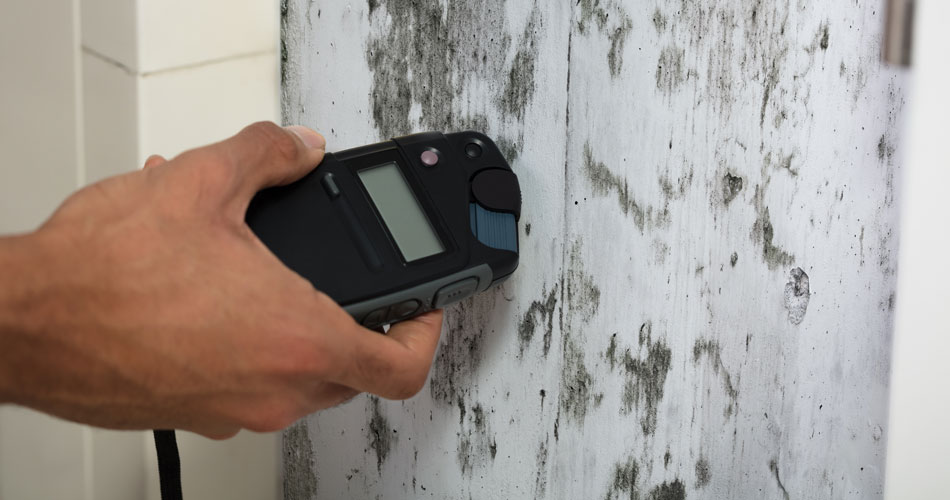Mold growth within a home or business is not always apparent to the naked eye! You may smell it but can’t see it; you may have physical symptoms of exposure to it but can’t see or smell it. The only way to know for sure is to perform air quality testing with a certified and trained mold assessment inspector. The following may be signs that you have a high level of mold spores within your home or business:
- Mold Growth: The most obvious sign is the presence of visible mold growth on surfaces such as walls, ceilings, floors, or even furniture. Mold can appear as black, green, white, or brown patches and can have a fuzzy or slimy texture. Shine a flash light horizontal along a wall or surface – you may be surprised on what you find that you can’t see by looking straight at a surface!
- Musty Odor: Mold often emits a musty, earthy odor, especially in areas with poor ventilation or high humidity. If you notice a persistent musty smell in certain areas of your home, it could indicate the presence of mold.
- Previous Water Damage: Any areas of your home that have experienced water damage, such as leaks from plumbing, roof leaks, or flooding, are at a higher risk of developing mold. Check for signs of water stains, discoloration, or peeling paint, as these could indicate past or ongoing moisture problems that promote mold growth.
- Health Symptoms: Exposure to mold can cause a variety of health problems, including allergic reactions, respiratory issues, headaches, and skin irritation. If you or your family members experience unexplained health symptoms that improve when you leave the house and worsen when you return, mold could be the culprit!
- High Humidity Levels: Mold thrives in moist environments, so if your home has consistently high humidity levels (above 60%), it can create ideal conditions for mold growth. Invest in a hygrometer to monitor humidity levels in different areas of your home and take steps to reduce humidity if necessary, such as using a dehumidifier or improving ventilation.
If you suspect that you have mold in your home, it’s important to address the issue promptly to prevent further damage and protect your health. Consider hiring a professional mold inspector to assess the extent of the problem and they can recommend a remediation contractor to assist with removal. It is always best practice to use separate companies when testing and remediating to ensure there is no conflict of interest!


Recent Comments